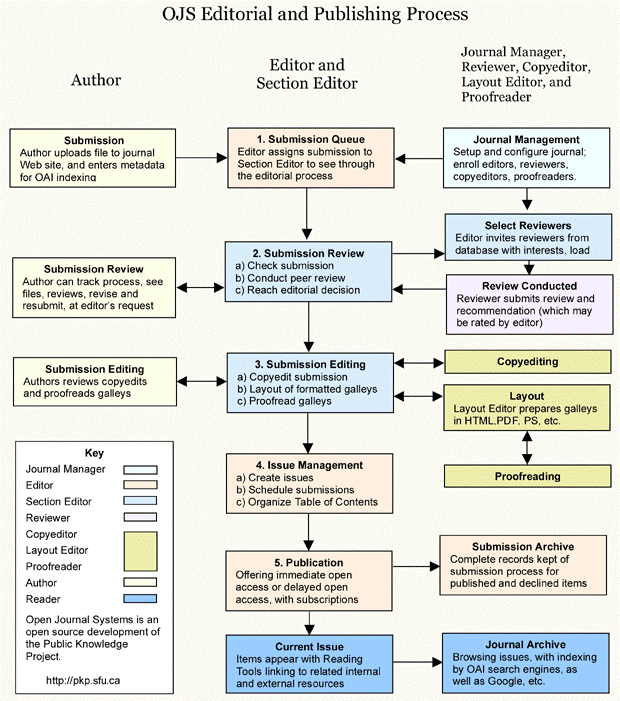About the Journal
Policies
-
Focus and scope
The journal Agro Productividad has as a goal to disseminate original scientific research results, aimed at researchers and higher-education students interested in agricultural, forest and rural development sciences. The topics published deal with cultivations, forestry, livestock breeding, agroindustry, fishing and aquaculture, as well as food industry and rural economy. Owing to its nature this a publication with international scope. Journalistic documents and those lacking rigorous scientific support are not suitable for publication.
The contributions received for possible publication must accredit a review process under the modality of “double-blind peer revision”, as well as the editorial review of the final version. The sorts of documents disseminated are: original research articles. The journal Agro Productividad is a monthly open access electronic publication published in Spanish —with abstracts in English language— (issued the final days of the month), published and funded by Colegio de Postgraduados en Ciencias Agrícolas, with headquarters in Texcoco, State of Mexico. The journal follows a Code of Ethics based upon the regulations by the Committee of Publication Ethics (COPE), which the journal adheres to.
-
Section policies
Original research articles
The journal Agro Productividad only publishes original research articles. Contributions received for possible publication must be the result of original research derived from high level academic work referred to the Agriculture: crops, forestry, livestock, agro-industry, fisheries and aquaculture, as well as agro-food production and rural economy, on condition that they explicitly and thoroughly present the theoretical-methodological strategies resorted to and emphasize the findings that come from their application. A classic structure defined by chapters: Title, Authors and institutional ascription, Abstract and keywords in Spanish and English, Introduction, Objectives, Materials and Methods, Results and Discussion, Conclusions and Cited Literature. For further details, see Guidelines for authors
-
Editorial review
The authors who submit an article for possible publication in Agro Productividad must send —full and in its final version— the documents indicated in Requirements for manuscript submission. Once the editorial team validates that the submission meets all the submission requirements, the text will be sent to editorial review, which consists of the following stages:
-Accredit a revision using the software approved by the Editorial Committee for plagiarism detection, only after this will it be possible to go on to the following stages of the editorial review.
-It will be verified that the submitted text correlates with the focus and scope of the journal.
-It will be verified that the text meets each and every indication as stated in requirements for manuscript submission and requirements for manuscript delivery as well as guidelines for authors.
-It will be verified that the reported bibliography is relevant and updated and that it is duly listed following the APA citation style.
-In accordance with the editorial policy guidelines, approved by the Editorial Committee, priority will be given to texts whose bibliography is electronically managed and with active hyperlinks to the corresponding DOI, when applicable.
Once the submitted article accredits the editorial review, the corresponding author will be formally notified of the registration and beginning of the academic review process.
-
Academic review
The articles must favorably accredit the process of academic review which will be performed under the modality of double-blind peer review, in which the identity of both authors and reviewers will remain anonymous:
-The articles that accredit the editorial review will be sent to academic experts in the same disciplinary and thematic area as the submitted text. The reviewers will be selected from the referee panel —composed of specialists from national and international institutions— who will comment on the relevance and academic quality of the submitted text and will rule on the feasibility to publish the text in question.
-The reviewers will be in charge of revising and analyzing the academic, theoretical and methodological relevance of each and every article assigned to them. They will be responsible for revising the explicit presence of a theoretical-methodological section, as well as its congruency with the field of studies, coherence between academic output and relevance of findings, and also the up-to-dateness and suitability of the bibliography resorted to.
-All the texts will be sent to two experts —ascribed to an institution other than the authors’— who will express their comments.
-In case of discrepancy between reviews, a third reviewer will be asked to resolve the ruling.
-Finally, on the basis of the reviewers’ recommendations, the decision of the editors of Agro Productividad will be:
Recommend its publication without modifications.
Recommend its publication with minor changes, which do not make it necessary a second review by the referees.
Condition its publication on making major changes, which makes it necessary a new revision by the referees. This process may repeat up to three rounds, if upon reaching this point the document is not recommended for publication yet, it will be rejected with no option to resend it.
Publication is not recommended.
-For a text to be approved for publication it is indispensable that, at least, two of the three rulings are positive.
-The editorial board will ensure, in all cases, that the reviews delivered to the authors have solid arguments to support the editorial decision.
-The results of the editorial review process will be unappealable in all cases.
-In case of observations to the articles, the authors will have a 15-natural-day deadline to send the editor the new version of the work. Should this deadline not be met, the document will start the process afresh.
-The time for the document to be sent to review will be dependent on the number of articles in the waiting list. The referees, upon receiving the article, will have four weeks to perform the review and deliver the result.
-The accepted documents will start the edition process (proofreading, metadata marking, layout, etc.), to later be included in the corresponding fascicle, according to the decision of the editorial board.
-Once the editorial process concludes (proofreading, metadata marking, layout, etc.), the preliminary version of the text will be sent to the authors for their final revision and approval. The authors will have a 3-natural-day deadline to deliver their approval, should they not comment within such deadline, the journal’s editorial coordination will assume the authors have tacitly approved
-
Copyright and open access policy
The authors who publish in Agro Productividad accept the following conditions:
In accordance with the copyright legislation, Agro Productividad recognizes and respects the authors’ moral as well as patrimonial rights, which will be transferred to the journal for its dissemination in open access.
All the articles published in Agro Productividad are available in open access and online for free immediately after publication. This is possible in virtue of an Article Processing Charge (APC) of 7,000 MXN, which covers the range of services we offer. This includes the provision of online tools for authors and editors, production and hosting of articles, linking with abstract and indexation services and customer service.
APC must be covered once the manuscript is accepted by the publisher, and must be made previous to the publication, the charge will be issued to the corresponding author, who will be responsible for making or arraigning the payment with the funder or corresponding institution for the accepted article.
All the texts published in Agro Productividad —with no exceptions— are distributed under a Creative Commons Attribution-NonCommercial 4.0 International (CC BY-NC 4.0) license, which allows third parties to use the publications as long as the works’ authorship and the first publication in this journal are mentioned.
The authors can enter into other independent and additional contractual agreements for the non-exclusive distribution of the version of the article published in Agro Productividad (for example, to include it into an institutional repository or disseminate it through other printed or electronic media) as long as it is clearly and explicitly mentioned that the work was first published in Agro Productividad.
The readers can download, print and share the contents of the journal for free and with no restrictions as long as it is clearly and explicitly indicated that the work was published in Agro Productividad and this is noticed in the correct citation of the original source
For all the above, the authors must send the patrimonial rights transfer letter for the first publication duly filled and signed by all of them. This form must be sent as a PDF file to the following email address: [email protected]

This work is licensed under a Creative Commons Attribution-NonCommercial 4.0 International (CC BY-NC 4.0) license
-
File preservation
This journal uses LOCKSS system to create a storage system distributed over the participant libraries and allows the creation of permanent files in the journal with a view to preserving and restoring it. More…
-
Registration in scientific content databases and directories
It is indexed in Zoological Records, CAB ABSTRACTS, CABI, Periodica, Latindex, Biblat y Master List, Clarivate Analytics
-
Code of ethics
The Journal Agro Productividad adheres to the code of ethic for the action and performance of personnel involved in the publication process of this journal (editor, editorial committe, authors and reviewers) established by the Committe on Publication Ethics (COPE) and available at: https://publicationethics.org/resources/code-conduct
-
Plagiarism detection
Under no cirscumstance plagiarism will be allowed in Agro Productividad: either as a redundant publication (i.e., that two or more documents, without complete crossed references share the same data hypotheses, discussion points or conclusions) or as a direct plagiarism (absence of references, use of third parties´ ideas, published or unpublished).
Specialized software to detect plagiarism is used. The texts received will undergo a revision before being sent to editorial and academic review, they will be rejected if the percentage of similarity with other text published or available on the internet is above 20%.
If possible plagiarism of a published text is suspected or reported, the procedure to follow and the consequences of this action will be determined according to what COPE summarizes in the following flowchart.
The consequences range from a calling to attention if it is the case of a mistake or misunderstanding to the rejection of the article and the accusation before the authors’ institutions.
-
Guidelines and best editorial practices
These guidelines refer to the best editorial practices by COPE and available at: http://publicationethics.org/resources/guidelines
Functions of the Scientific Committee
- Promote the submission of articles for possible publication in the journal among the national and international academic community.
- Suggest academic guidelines to update the journal’s editorial policy.
- Promote the dissemination of the journal in national and international academic media.
- Participate as reviewers of works submitted for possible publication or recommend other experts as reviewers.
Functions and responsibilities of the Editorial team
- Promote the submission of articles for possible publication in the journal among the national and international academic community.
- Support in the selection of reviewers for the submitted works, as well as deliberate on the best options for reviewers when necessary.
- Decide on the relevance of the materials received, on the basis of the experts’ reviews.
- Approve the content proposed for each number of the journal.
- Review and assess each issue published.
- Collaborate with the corresponding parts to maintain the periodicity established for publication.
Functions and responsibilities of the Director
- Coordinate the actions that lead to meet the journal’s goals.
- Ensure a high academic level in the published content.
- Receive the works submitted for possible publication and ask for the reviews.
- Monitor the fulfilment of the reviewers’ recommendations.
- Report the authors on the stage of the editorial process in which the submitted text is.
- Report the Editorial Committee the reviewing process on all the materials received, being careful with confidentiality.
- Propose the Editorial Committee the content of each journal number, on the basis of the texts corrected and approved at that time.
Functions and responsibilities of the Deputy Director
- Plan and coordinate the journal’s editorial production process.
- Supervise the technical processing of the materials approved by the Editorial committee, once the established academic requirements have been met.
- Supervise proofreading and the journal’s technical quality.
- Collaborate to maintain the periodicity established for the journal publishing and that the dissemination and distribution of each number begins within the first month of the corresponding period.
Authors’ responsibilities
- Follow the journal’s publication requirements regarding: originality, unpublished texts, relevance.
- Present their results with honesty, without lying, falsifying or manipulating data.
- Assume collective responsibility, if this is the case, for the presented and published work.
- Funding sources and relevant conflicts of interest must be stated in the article.
- Quote the work of others accurately and only refer publications mentioned in the text.
- The authors must report the editors if the results have been previously published or if various results or multiple analysis one same dataset are being considered for publication somewhere else. The authors must provide copies of the related publications or works sent to other journals.
- Once the article has been received it will not be possible —for no reason whatsoever— add authors not stated at the beginning of the submission, nor to suppress the name of any author listed at the beginning. In case the authors insist, the article will be rejected, regardless of its current stage of the process.
Reviewers’ responsibilities
- Accept the revision of texts that fall into their area of expertise so that a suitable review is performed.
- Declare from the beginning of the process if there is a conflict of interest. If the identity of any author is suspected, notify the journal if this situation poses any conflict of interest
- Reject the revision immediately if it is no possible for them to deliver it within the deadline.
- Produce their assessment on the basis of originality, contribution of the article to the topic, methodology, relevance and up-to-dateness of the bibliography reported; style, coherence and quality and structure in the drafting of the text.
- Report the journal, immediately, if over the review they find or discover they do not have the necessary experience to assess all the aspects of the text.
- Their criticisms shall be objective, specific and constructive.
- Clearly state the approval, rejection or conditioning of the text.
- Produce their assessment within the deadline.
- Respect confidentiality during and after the review process.
- Not use contents of the revised or in-revision text.
- Do not involve other people in the assigned revision.
- Communicate the journal if similarity with other text they have revised is detected or if any sort of plagiarism is noticed.
- Transferring the responsibility to perform a review to another person, assistant or collaborator is forbidden.
Conflicts of interests
Conflicts of interest arise when authors, reviewers or editors have non-manifest interests, which might influence their judgement on the to-be-published material. These may be personal, academic, economic, political or religious. If such interests are relevant, they must be reported to the editors. Owing to this, the journal incudes a form of absence of conflicts of interests which all the authors must sign.
Other
-
Journal´ s sponsors
Colegio de Postgraduados en Ciencias Agrícolas
Editorial Colpos (Publishing house)
-
Journal´ s history
Agro Productividad was founded in 2008 with a view to addressing the outreach of knowledge toward society from the training of human capital (talents) and in research as means to generate, transmit and apply knowledge in an articulated manner.
In 2011, the image was redesigned so as to broaden the dissemination of the scientific message among academicians and researchers. Its issuing changed from quarterly to bimonthly, and since 2016 it is distributed over its digital platform.
Institution of origin of publications
2016 2017 2018


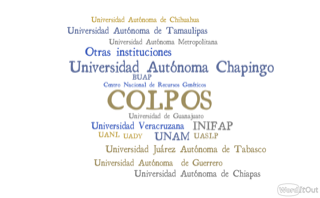
Country of origin of publications
2016 2017 2018
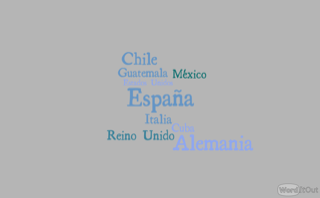
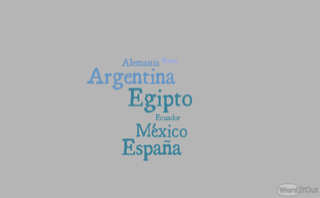
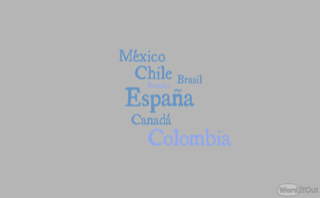
-
Site map
http://revista-agroproductividad.org/index.php/agroproductividad/sitemap
-
On this publishing system
This journal uses Open Journal Systems, which is manager of open access journals and software developed, funded and distributed freely by Public Knowledge Project subject to GNU licence.
